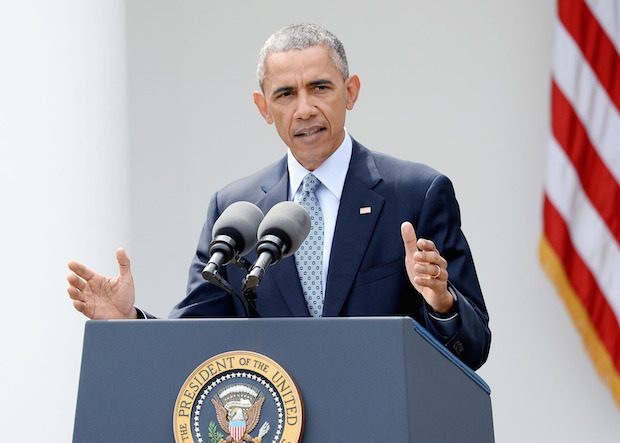The Disgrace of U.S. Support for the War on Yemen

Michael Brendan Dougherty condemns the U.S. role in the war on Yemen:
It’s a disgrace and an abomination. The Obama administration needs to recognize, like any designated driver, that a friend who is abetted in reckless behavior will become a liability. It’s time to tell our friend to stop it, end the blockades, cease bombing civilian targets, and let the Yemeni people come to a new, hopefully more durable political settlement. The U.S. has enough disasters on its conscience in this region. We don’t need Yemen, too.
It is no surprise that I agree with Dougherty here. The Saudi-led intervention has been going on for over seven months, and U.S. support for their operations has been constant, and I have been criticizing both from the beginning. The administration has aided the Saudis in waging their war with weapons, intelligence, and refueling, backed the blockade they have imposed that starves Yemen of basic necessities, and helped to shield the Saudis and their allies from independent international investigations into war crimes committed in Yemen. The Obama administration is responsible for this disgraceful enabling of the Saudi-led war on Yemen, but it has had lots of tacit support from a Congress that has barely noticed what’s going on and from the remarkably limited coverage the war has received in American media.
Obama’s policy faces little or no scrutiny and absolutely no political pressure at home, and so it continues to inflict terrible harm on the people of Yemen and on our reputation and our security interests. I addressed the U.S. role in my remarks yesterday at our conference:
The current intervention in Yemen is a conflict that the U.S. has joined out of a misguided desire to placate client states at considerable cost to our country’s reputation and security interests. The U.S. should have no part in such conflicts, and it ought to be using its position as a patron to restrain clients rather than enabling their worst behavior.
There were some brief mentions of U.S. “soft power” during our panel, but we weren’t able to discuss it at great length. If there had been more time, I would have liked to ask the other panelists what effect they think U.S. support for such an atrocious war is having on our “soft power” in the region now and in the future. I’m confident that it is having a disastrous effect on how the U.S. is perceived, and as Dougherty says it makes a mockery of our professed concern for the protection of civilians elsewhere.
U.S. backing for the war on Yemen is the kind of indefensible, horrid policy that one might think an opposition party would see as a major vulnerability for the president, but the only protests against U.S. involvement to date have come from within his own party and it took months before there were even minor protests. The only problem most Republicans seem to have with it is that the administration hasn’t been doing enough to support the Saudis. If “humanitarian” interventionists and advocates of “moral clarity” weren’t as cynical as they clearly are, one might expect to have heard something from at least a few of them by now about the evils being perpetrated on the civilian population with our government’s help, but they have remained either deafeningly silent or are openly supportive of the campaign. In a sane foreign policy debate, Rubio’s endorsement of the Saudis’ intervention and his call for increased support for it would be deeply discrediting, but instead like the war on Yemen itself it goes almost entirely unnoticed.
As I’ve said before, the U.S. is deeply complicit in the wrecking of Yemen, and our entire political class is implicated in allowing such a monstrous policy to continue largely free of criticism or condemnation. U.S. support for the war on Yemen is a particularly shameful episode in modern U.S. foreign policy, and like so many of those before now it has the support, tacit or otherwise, of both parties.
Comments